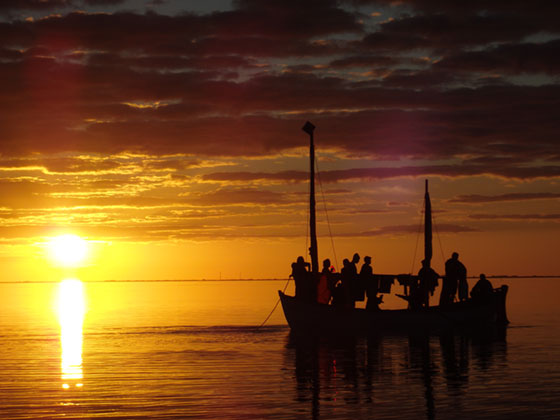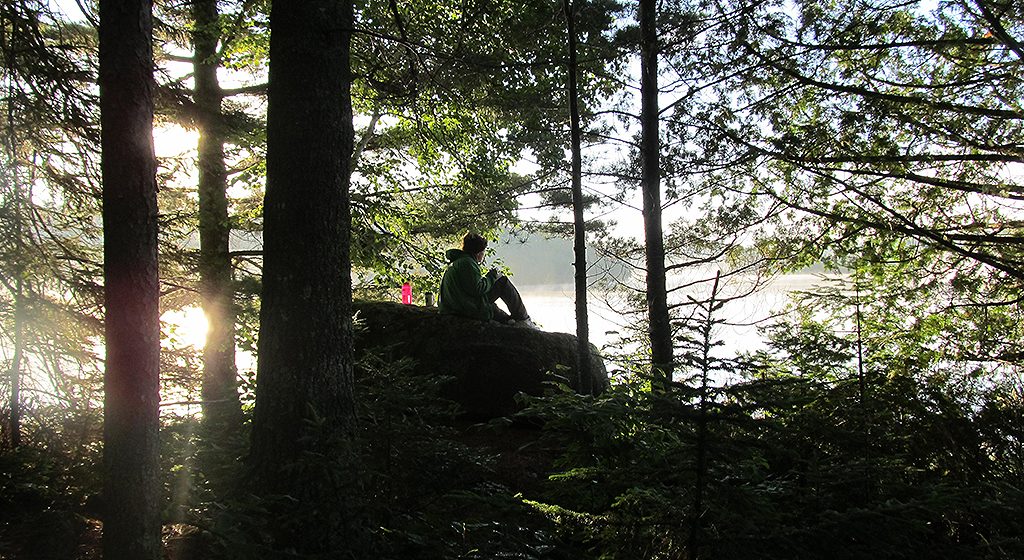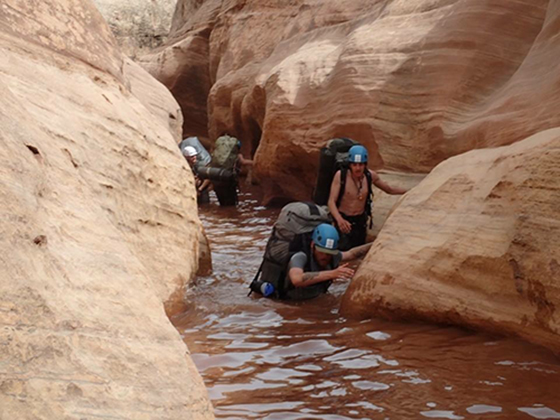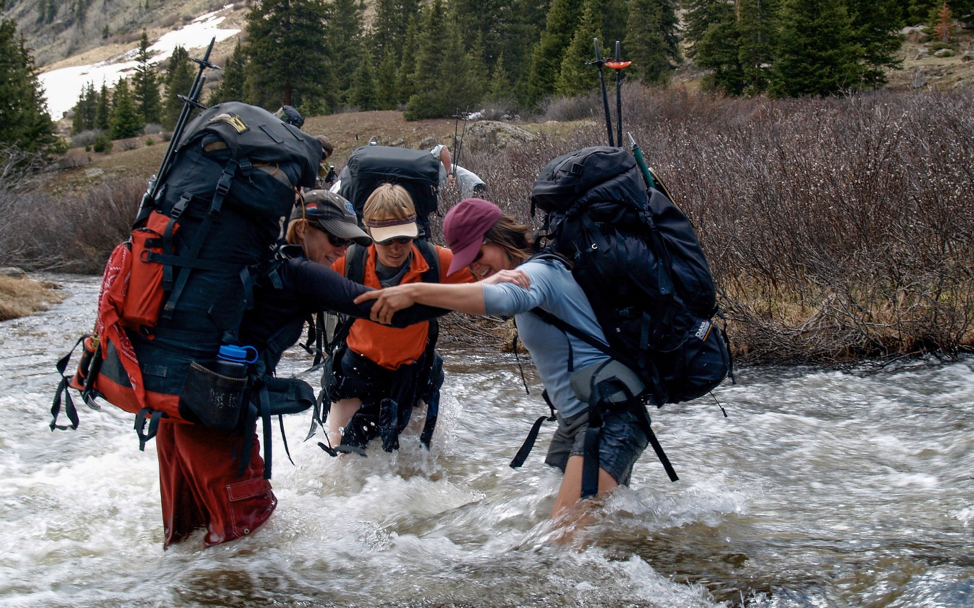Like many other people, as the news continues to emerge about the current pandemic, I’m beginning to view it as one of the most important challenges of my life. Words like unprecedented and crisis dominate the headlines of my newsfeed as I settle into a new reality of physical distancing, unemployment and uncertainty about my future.
I’m an Outward Bound Instructor. This identity permeates every detail of my life; I’m not an Instructor only when I’m in the field with my students. Rather, I approach every event, challenge and opportunity like it’s an Outward Bound course. With plenty of time to reflect recently, I’ve come to realize that the lessons I’ve learned over my years with Outward Bound have prepared me to face this challenge the same way I face the rapids, summit attempts and long days in the backcountry during a course. Since its inception in the United States in 1961, the mountains, rivers and trails have been the teacher for tens of thousands of Outward Bound Instructors and students who finish their course, ready to implore these new learnings in their lives back home.

The ultimate purpose of outdoor education is to prepare us and give us the tools to solve future problems. In the field, we intentionally put ourselves into stressful and difficult physical and social experiences so that, in the future, we’re aware of what it takes to thrive in adversity. Below are some of the more important lessons I’ve learned in the field and how I’m applying them to my life now.
Patience
The most up-to-date information about the pandemic leaves us with more questions than answers. There’s a tremendous amount of uncertainty in our lives, and we don’t know how long the world will be like this. One solution to this challenge is simple patience. Follow the advice of health professionals and the government, and practice physical distancing. Since this isn’t how we normally live, it won’t come easy. We will be uncomfortable at times. However, sticking to some regular habits and searching for a type of normalcy will make this unfamiliar trail feel like home.
A major part of an Outward Bound course is what we call Solo. It lasts anywhere from a few hours to a few days, but usually means that students are alone, without their usual comforts, and are restricted to a small space in the backcountry. In a way, the entire country is on an unplanned Solo right now. Ask any Outward Bound alumni about their Solo experience and they’ll tell you that patience is an important part of completing the process.

Photo by Kristin Adam
Remember that you are capable of more than you know. Staying at home and being patient is one of the best things you can do right now, even if it seems like the hardest thing to do.
Community
Our friends, family and neighbors need us now more than ever. In the field, when somebody’s backpack is too heavy, the group takes things out of that person’s pack to lighten their load. When an Outward Bound crew goes rafting, the only way they make it safely to the bottom of the rapid is through teamwork and trusting one another. We need to remember that we’re all in this together. Now’s the time to lean on our loved ones and ask for help.

This past week, a friend volunteered to bring over some toilet paper, and another friend delivered us some flour so we could bake bread. While the interactions with our community will certainly be much different, it doesn’t mean that community doesn’t exist. In times of crisis, we all need help and it’ll be much easier if we solve this problem together.
Above All, Compassion
Now’s the time for unity, compromise and coming together. We need to approach every decision in our day through the lens of compassion and understanding. On a course this past summer, we had planned and trained for a peak attempt of Middle Sister in Central Oregon. The day we were supposed to go for the summit, we woke up to sub-freezing temperatures, 40 mph winds and snow blowing across our faces. Instead of being upset about our situation, the group came together to make some hot drinks, pack efficiently and safely negotiate the terrain to the valley. In times of struggle, our true character is revealed. Our crew looked out for one another and put the higher purpose of safety far above their personal needs and desires. Will we lend a hand to our neighbor? Will we make sacrifices of changing our daily routine in an effort to keep others safe? If you’re at the store and are contemplating taking the last box of pasta off the shelf, ask yourself if you really need it. If you practice daily acts of compassion, you’ll be proud of your decisions.

Executive Director of the Northwest Outward Bound School, Marc Heisterkamp, put it best in a recent email to staff when he said, “This is the course we’ve been preparing for.” Those words stuck with me. It’s the same advice that I would give my former students and peers, and it’s the same pep talk that I give myself.
Collectively and individually, we have the strength, knowledge and ability to conquer this crisis in a safe and compassionate way. Our everyday decisions will make a huge difference in our lives and the lives of others. I encourage you all to dig a little deeper to find some patience, embrace your community, and, above all, support one another through compassion. See you at the bottom of the rapid.
About the Author
Nick McEachern is an Outward Bound Instructor who splits his time between Central Oregon and Salt Lake City. His passion is looking at the edges of the map for adventurous ways to travel across landscapes and waterways with his friends. He enjoys drinking coffee in his sleeping bag and paddling into a headwind.




